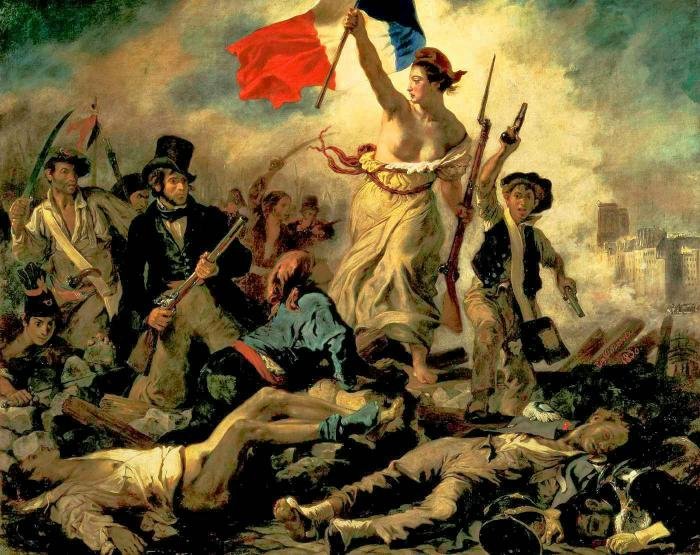Granma 299
The Wasp Network

SPECTATOR’S CHRONICLE
The Wasp Network
Finally screened at the 41st New Latin American Film Festival, The Wasp Network (Olivier Assayas, 2019) makes it clear with historical objectivity that the Cubans who infiltrated counterrevolutionary Miami exile organizations had the right to watch over their country’s security.
————————————————————————————————————-
Author: Rolando Pérez Betancourt | internet@granma.cu
December 8, 2019 22:12:47
A CubaNews translation. Edited by Walter Lippmann.

Finally exhibited at the 41st New Latin American Film Festival, The Wasp Network (Olivier Assayas, 2019) makes it clear with historical objectivity that the Cubans who infiltrated counterrevolutionary Miami exile organizations had the right to watch over the security of their country, and thus stop the wave of terrorist attacks of the 1990s carried out under the protection of the United States.
This is an important aspect to be taken into account in the film by the Frenchman Assayas, a prestigious director whose work is known in our country. He has made it possible to appreciate the sensitivity of an artist capable of tackling the most dissimilar human problems from intimate stories.
Based on the book The Last Soldiers of the Cold War, by Fernando Morais, Assayas himself wrote the script about a conflict that – it could not be otherwise – establishes who are the aggressors and who are the victims in a history that goes back half a century.
It was enough for the Miami counterrevolution, without seeing the film, only news after its presentation at the Venice Film Festival, to make a fuss and a pathetic warning: in those lands, the film couldn’t even show its head.
The theme of the Five Heroes and the stories that flow from it would allow us to make a few films and series. But in any work based on reality, there is a selection of events and characters, along with artistic licenses put into function of a dramaturgy and simplification of the plot. From Morais’s book, Assayas highlights what he considered pertinent to build a web of events that span several years and not a few intrigues. Although the film has been promoted as an espionage thriller, the director says that it is a historical vision conceived with the intention of capturing a feat that, after he learned about it it, captivated him.
It was advisable, however, to balance the tone and balance the conflict in such a way that a whole point of view in favor of the revolutionary cause did not prevail in a film with foreign funding and international distribution. Besides, the assumption of the political factor in any subject is always a reason for division of opinions and even entrenchments. These can be seen now, even, in “artistic” criticisms in which ideological positions against the “Cuban communist regime” stand out more than an unprejudiced practice of professional analysis.
But facts are facts and artistic honesty, although it is necessary to qualify, cannot be detached from them.
For this chronicler, The Wasp Network ends up being a film worthy and meritorious to see, which is not free of inconsistencies in its realization. Of these, the most significant, is the dispersion motivated by wanting to cover everything and explain more than necessary, taking into account the possible ignorance of the subject that an international audience could have. In this sense, the script resorts to leaps in time and an entry and exit of characters that leaves gaps in terms of purposes of the story and the lack of roundness of certain situations, such as the one concerning the flight to Cuba undertaken by the infiltrator Juan Pablo Roque (Wagner Moura).
Another debatable card -which for a Cuban spectator has nothing revealing about it- is the surprise factor that is intended to impregnate the infiltrators in Miami. It first, it makes them appear as traitors who escape from the Island and later, in their real function, a double game devoid of the dramatic force that, it is guessed, was among the director’s goals.
The Wasp Network is focused on the stories concerning René González (Édgar Ramírez) and his wife Olga Salanueva (Penélope Cruz, in an excellent performance).
Also the afore-mentioned Roque and the wife who is sought in Miami (Ana de Armas), each couple with their very particular love-political conflicts and was carried with considerable ease in the plot. Gael Garcia Bernal plays Gerardo Hernandez, leader of the group. It would be necessary to see the opinions that the real characters have regarding their characterizations.
The film efficiently reconstructs the terrorist attacks against tourist facilities, shows the maximum faces of the counterrevolutionary exiles and resorts to excerpts from the archives as a reminder that everything that counts comes from reality. This is how President Clinton and Fidel appear separately, towards the end, during an interview with an American journalist. Fidel is conclusive about the right of the most spied country in the world, Cuba, to know what the enemies are doing on U.S. soil to attack the Cuban people.
Google and Facebook Threaten Freedom

Google and Facebook Threaten Freedom of Opinion and Expression
This is considered in a report, by the non-governmental organization Amnesty International. According to the NGO, «the vast advertising architecture of Google and Facebook is a powerful weapon in the wrong hands.
November 21, 2019
A CubaNews translation.
Edited by Walter Lippmann.

Google and Facebook have gradually eroded our privacy »states the NGO Amnesty International.
“Their insidious control of our digital lives undermines the foundations of privacy and is one of the greatest human rights challenges of our time,” said Kumi Naidoo, general secretary of Amnesty International.
In a report, the non-governmental organization Amnesty International argues that by making their free online services essential for billions of people and by using personal data collected for targeted advertising, these groups threaten freedom of opinion and expression.
“Their insidious control of our digital lives undermines the foundations of privacy and is one of the greatest human rights challenges of our time,” said Kumi Naidoo, Amnesty Secretary-General, cited in the document.
Kumi Naidoo added that people are “trapped.”
«Google and Facebook have gradually eroded our privacy. Today we are stuck. Or we submit to this great surveillance machine, where our data is easily used to manipulate and influence us, or we renounce the benefits of the digital world, ”he added.
For AI’s secretary-general, the “extraction and analysis of personal data in gigantic proportions” is not compatible with the right to freedom.
According to the NGO, «the vast advertising architecture of Google and Facebook is a powerful weapon in the wrong hands because it can be used for political purposes and leaves the field open to all kinds of new advertising strategies, such as attacking vulnerable people who are fighting diseases, mental illnesses or addictions ».
Amnesty International has called on governments to “act urgently,” including through the “application of strict data protection laws and the effective regulation of the activities of technology giants.”
Hitler’s Hollywood

Hitler’s Hollywood
In the documentary a concept similar to Goebbels is clear: the masses don’t go to the movies to be taught, but to evade reality, hence the imperative to create artificial nirvanas for them. They didn’t even disguise their intention
—————————————————————————————————————
Author: Rolando Pérez Betancourt | internet@granma.cu
November 19, 2019 20:11:08
A CubaNews translation.
Edited by Walter Lippmann.

Hitler reviewing a film, still from the documentary. Photo: Taken from the Internet
Although the Nazi cinematography gave a great deal of expression to its ideology, and did not spare any resources to do so, it also produced “escapist” stories – comedies, musicals, melodramas, police – aimed at distracting the attention of an audience trapped in a turbulent time.
Taken in numerical terms, it could be said that that duality in production was 50/50, according to the documentary Hitler’s Hollywood (2017), which forms part of a trilogy by the essayist Rüdiger Suchsland, aimed at examining the cinema of the Third Reich, close to a thousand films made between 1933-1945 under what was intended to be a “dream factory” in the best style of Nazi Germany.
Suchsland undertakes a methodical analysis -social, political and aesthetic- marked by objectivity and contention, without diatribes against films that would have deserved it for their racist and xenophobic approaches, a cinema that liked to proclaim that it would last a thousand years, and elaborated an ideological imaginary full of stereotypes against the ancestral values of humanity.
The exhibition of part of this work, which had its highest star in Hitler, has been forbidden in Germany and permissions are needed to project it as study material, therefore, it remains unpublished for the new generations, eager to know what was really that cinematographic gear marked by an insane policy.
Suchsland’s documentary brings us closer to the days when Nazi cinema put the greatest effort into the technical quality of its productions, trying to create its own “art” and compete with Hollywood, which it had no qualms about adapting, according to a scale of values that since the 1930s had been traced by the ideologists of Nazism (in that way, the artificial “American way of life”, distilled by American films, was finding its German equivalent in amelcochado films that glorified Nazi patriotism and sang praises to the times to come after the triumph of Nazism).
Although Hitler was known to like cinema, especially Disney’s work, the responsibility for driving the industry fell on Goebbels, with a culture fostered at universities in Bonn and Berlin. Appointed Minister of Propaganda and Information in 1933, one of his main tasks was to use schools and the media to turn Hitler into a god destined to dominate the world. And there is nothing better for it than cinema.

Rüdiger Suchsland, director and scriptwriter of the documentary. Photo: Taken from the Internet
Goebbels tried to have a Nazi Potemkim filmed for him. He also forbade a German version of Titanic from reaching the screens at the last minute in 1943, when the battle of Stalingrad turned the war upside down. The film could be interpreted as a metaphor for Germany sinking and overnight its director Helbert Sepin, who had left half a skin on the set, was [deemed] suspicious to the Gestapo and without trial or argument ended up on the gallows.
Willing to impress the world with his cinema, which, in terms of pace of production, came in second place behind Hollywood, Goebbel spared no money (or pressure) to ensure the permanence in the country of directors and stars. In the early days, he tried to overcome California’s Mecca internationally, forcing him not to touch on harsh subjects, not even to make horror films that could be “misinterpreted”.
Not a few of these films show the overflowing joy of the German people, a supposed enthusiasm embodied in comedies and musicals, and there is no lack of the technically brilliant (and repudiable in their content) documentaries by Leni Riefenstahl, an innovator with the camera who exalted the myth of the Aryan race to the point of exhaustion.
In Hitler’s Hollywood, a concept similar to Goebbels is clear: the masses do not go to the cinema to be taught, but to evade a reality, hence the imperative of creating artificial nirvanas for them. They didn’t even disguise their intentions and in this respect the narrator of the documentary says: “in general, Nazi cinema was thought to abolish all distinction between reality and fantasy”.
The truth is that by separating those films from marked ideological political propaganda, what remains is an entertainment cinema not very different from the one we see today. Director Rüdiger Suchsland says: “The entertainment industry has always had the function of controlling people. Even in democracies. It can be argued that, thanks to the internet and the almost total digitalisation of society, we are in a new stage of control and manipulation, and that the entertainment industry is less and less focused on developing free minds and illuminating them. That’s what I sometimes think, but I also believe that conspiracy theories and cultural pessimism are a serious danger to democracy. They’re there to make us feel powerless.
A thesis that links Nazi cinema to the present and that is not new. The essayist Siegfred Krakauer, in his great work From Caligari to Hitler (1947) revealed that the dominant psychological tendencies in that cinema “could be profitably extended to the study of the masses, both in the United States of America and in other countries”.
It is well known that when the Nazi empire disappeared, the American cinematographic expansion ended up taking over most of the world’s screens and today only one dream factory remains.
The CIA and the George Orwell Paradox

The CIA and the Paradox of George Orwell
The novel 1984, by English writer Eric Arthur Blair, known worldwide by the literary pseudonym George Orwell, constituted an accusation against totalitarian regimes and became the Central Intelligence Agencies greatest success
—————————————————————-
by: Jorge Wejebe Cobo | internet@granma.cu
A CubaNews translation.
Edited by Walter Lippmann.

Photo: Internet
English writer Eric Arthur Blair, known worldwide by the literary pseudonym George Orwell, was a combatant during the Spanish Civil War, which he said he joined “to kill fascists, because someone had to do it.”
His novel 1984 was an indictment of totalitarian regimes and became the CIA’s greatest success in its most widespread propaganda operation against the Soviet Union in the 1950s.
Orwell was born June 25, 1903 in India, where his father worked as a low-level colonial government official at the age of two, he moved with his mother and sister to England.
His literary career was based on those early experiences. He wrote the novel Burmese Days and essays such as A Hanging (1931) and Shooting an Elephant (1936) in opposition to the colonial system, in addition to writing stories about workers’ conditions.
These first texts place him in the liberal tradition of the generation of European writers born at the beginning of the 20th century, defrauded by the crisis of bourgeois society. In the face of the new conflict that German fascism would provoke, many of them took positions sympathetic with socialist ideas and the USSR in opposition to Nazi barbarism.
Another stage in his formation began in the Spanish Civil War, in which he was wounded and knew first hand the internal divisions of the anti-fascist front, among Trotskyists, with whom he sympathized, communists, anarchists and other tendencies. Meanwhile, from the USSR, came news about Stalin’s purges that shook his ideas favorable to socialism in that nation.
He wrote: “The Spanish war and other events in 1936-1937 changed things, and since then, I knew where I was. Every serious line I have written since 1936 has been written, directly or indirectly, against totalitarianism and in favor of democratic socialism as I understand it.”
Under these premises he presented in 1945 the novel Animal Farm, a parody of a totalitarian society in which the local animals carry out an insurrection against the humans, a plot which expresses open criticism of the Soviet system and of English society of the time.
Later, in 1948, he finished his novel 1984, in which he presented a world ruled by great dictatorial powers and describes a totalitarian empire directed by “Big Brother”, or the maximum leader. He bases his power on instruments of domination of the whole life of his subjects, whose civil rights are violated and even their love life is regulated.
He spent his last energies in the writing of that narrative, affected by the tuberculosis that would take him to his grave in 1950. [Meanwhile], on the other side of the Atlantic, in the United States, the recently-founded Central Intelligence Agency (CIA) fine-tuned a subversive campaign aimed at “conquering the hearts and minds”, mainly of the European intelligentsia.
One of the propagandistic themes of that battle was the promise that, after the defeat of “Asian barbarism”, identified with the USSR, the Western camp led by the United States would build a better world, based on democracy, human rights and freedom. [This was] a fable in which not a few intellectuals of the time believed.
To achieve that goal, the CIA organized the Congress for Cultural Freedom in the early 1950s. It was supported by a vast global network of allied governments and special services, cultural institutions, think tanks, press organs, publishing houses, foundations, and all kinds of institutions related to the sphere of culture, in a mega operation that extended into the 1960s.
As never before, incalculable efforts, resources and police methods of recruitment, blackmail, propaganda and psychological influence were directed at a sector of the intelligentsia. [They had been] pigeon-holed by the strategists of the special services under the term “non-Communist or anti-Soviet left”, [who were] also joined by some who repented their support for the Soviet ideal in the first half of the century, among whom was George Orwell.
Michael Warner, a CIA historian, wrote that the strategy of conquering that left was “the foundation of the Agency’s political operations over the next two decades,” cites English researcher Frances Stonor Saunders in her book The CIA and the Cultural Cold War.
The researcher points out that after Orwell’s death in 1950, the CIA, through its cultural front, negotiated with the writer’s widow the making of an animated film based on Animal Farm. [It was] considered the most ambitious project of its kind to that time.
More than 100,000 handmade illustrations were used for the animated film. Censorship of the original text was exercised, attacking characters [which he had] depicted as pigs, identified as the English and German bureaucracies and governments, which were removed from the final script to highlight anti-Soviet references.
Something similar happened with the film that was made about the other novel, 1984, in which all criticism of capitalist states was blurred. This turned the work into a notorious anti-communist manifesto, paid for with $100,000 dollars from the U.S. government.
Many years later, with the fall of the Berlin Wall in 1989 and the subsequent dissolution of the USSR, the supposed end of history was proclaimed with the victory of the world capitalist system with the United States at its head.
This was the context in which the foundations were laid for the concept of maximum surveillance by the wave of the revolution in new communications and information technologies. This has had a greater impact than ever before on the history of human development in all spheres of society.
The “Big Brother” of Orwellian fiction was established in the new millennium in the virtual world of the Internet. There, the not-so-virtual creeds, yearnings, hopes and information of millions of inhabitants pass. But, unlike the literary image, this new system is built and generalized on programs of artificial intelligence and cutting-edge technology to manipulate society with lies, with media names like “post-truth,” “soft power,” “color revolutions,” “asymmetric wars,” “fake news,” and other concepts.
These doctrines come from the chain production of the centers of the U.S. National Security Agency. They are dedicated to electronic snooping on the secrets of friends and enemies around the globe. [This is done] at the command of the Pentagon and the intelligence community of powerful countries. There, an army of thousands of efficient servants of an empire that seemed destined to surpass by far the ideas of the controversial and censored creator of 1984.
Hong Kong Demos Turn Violent

Demonstrations turn violent in two cities in Hong Kong
Hong Kong police fired tear gas on Saturday to disperse protests after groups favorable to Beijing destroyed some of the “Lennon Walls” of anti-government messages in the city ruled by China after more than three months of unrest
—————————————————————————
By Digital News Staff | internet@granma.cu
A CubaNews translation. Edited by Walter Lippmann.

Riot police remove a barricade in Tuen Mun, Hong Kong, China on September 21, 2019. Photo: Reuters
Hong Kong police fired tear gas Saturday to disperse protests after pro-Beijing groups destroyed some of the “Lennon Walls” of anti-government messages in the city ruled by China after more than three months of unrest.
The gases were fired when protesters threw Molotov cocktails into a police cordon in the new city of Tuen Mun in the western New Territories and near Yuen Long during the night.
Some demonstrators in Tuen Mun set fire to a Chinese flag while others knocked down wooden and metal fences and traffic bollards to block roads, at least one was set on fire.
Some destroyed equipment at the tram station, unearthed bricks and collected stones from the margins of the tracks. Others used police fire extinguishers.
“Radical demonstrators damaged the Tuen Mun Center tram station facilities with metal sticks, threw objects against the tracks and placed barricades nearby, causing traffic obstruction,” police said in a statement.
“Radical protesters also threw Molotov cocktails, posing a serious threat to the safety of police and others.
Hundreds of protesters strayed from the police cordon when tear gas was fired, many of them running down the highway to regroup.
Dozens of Beijing sympathizers had already knocked down some of the large colorful mosaics made with Post-it notes calling for democracy and denouncing the perception of Chinese interference in the former British colony, which returned to Chinese domination in 1997.
The “Lennon Walls” have flourished through the Asian financial center, in bus stops and shopping centers, under walkways, along pedestrian walkways and in universities.
Protests in Hong Kong intensified in June over legislation, now withdrawn, that would have allowed people to be sent to mainland China for trial. Since then, the demands have been extended to demands for universal suffrage.
Wow, I’m On The Blacklist…!

Wow, I’m On The Blacklist…!
That optimism was not clouded when, also on the morning of the 26th, I knew that a part of me – the writer – had entered the blacklist with which the President of the United States intends to drown us and force us to be a neo-colony – or perhaps one more star of the flag – of his country.
by Pedro de la Hoz | pedro@granma.cu
July 27, 2019 01:07:40
A CubaNews translation.
Edited by Walter Lippmann.
The morning of July 26th confirmed my optimism. To see and feel the people from Granma province [granmenses], in the name of many and in my name, honoring the legacy of the heroes of the Moncada; I could feel, in plain sight and with the heart ahead, the line of continuity between the revolutionary historical generation and the current one; knowing that poetry goes beyond words to settle in the most endearing place of collective memory. This happened when our President referred to the words of Miguel Barnet and Roberto Fernández Retamar, made me think about how much I can, can, deliver to be really better.
That optimism was not clouded when, also on the morning of the 26th, I knew that a part of me – the writer – had entered the blacklist with which the President of the United States intends to drown us and force us to be a neo-colony – or perhaps one more star on the flag – of his country.
As an author, I have signed contracts and published with the Captain San Luis publishing house. Now it turns out that this publisher, together with Verde Olivo [Olive Green, the magazine of Cuba’s Revolutionary Armed Forces] and two more hotels, were added to the list of Cuban entities with which US citizens are prohibited from having financial transactions.
In the case of n publisher, the ban indicates that there is no possibility that a similar American institution negotiates with it the publication of any work in its catalog, nor that a distributor or bookstore in that territory acquires or markets books published in Cuba from the houses mentioned, nor that a US citizen – not the very few who come to the Island in the midst of so many delusional restrictions, but those who visit the book fairs in the world and come up with them at a Cuban kiosk or another country to buy a volume from Captain San Luis and Verde Olivo – is suspected of having acquired publications from entities newly included i\on the Index.
I use this last term because it is obvious the kinship of the measure with the Index Librorum Prohibitorum et Derogatorum (commonly named by the first word) of the Holy Inquisition, in force from 1612 to 1819.
My editor, Julio Cubría, described the situation quite clearly: «The government of President Donald Trump has just included the publishing houses Captain San Luis and Verde Olivo in the list of entities restricted to the people of the United States. By simple presidential decree, the children of that country will not be able to read The Black Doll, by José Martí; nor discover The Night of the Rainbows, with Olga Marta Pérez, nor rescue with Enrique Pérez Díaz to Agatha in Danger. Their adults may not reveal the legend of the National Hotel of Cuba, written by Pedro de la Hoz and Luis Báez; nor to know the stories of the Capitolio, narrated by Ciro Bianchi and, of course, they will not be allowed in any way to know the true history of the dictatorship of Fulgencio Batista in Why the Cuban Revolution?, let alone the monstrosity of the biological war against Cuba, nor what did Fidel find to the triumph of the Revolution? What a great fear of Cuban culture. In spite of laws and blockades, our publishing house will continue as up to now exalt the truth ».
Behind the fight against Captain San Luis and Verde Olivo, the White House uses a pretext: both editorials are attached, respectively, to the Ministries of the Interior and the Revolutionary Armed Forces. Witch hunters don’t give a damn if published books deal with history, be they fiction, or testimonial accounts of general interest.
Looking at things well, however, it occurs to me that such a ban is associated with the cultural needs of the current occupant of the Oval Office. His response to the journalist Megyn Kelly was public and notorious when inquiring about his literary tastes: “I read passages, summaries, chapters, but I don’t have time to read.”
The last straw is that they are given by the author. His titles? How to get rich and think like a multi-illionaire. It would be enough to compare themes and contents with the books of the publishers Capitán San Luis and Verde Olivo, to coincide with what a writer expressed in the Mexican magazine Letras Libres – nothing to see or by any means with a thought close to the left – about the character : “Trump’s lack of culture will go down in the history of the country as a loss”.
Bucanero and Cristal at Way-Too-High Prices

Bucanero and Cristal at High Prices in Private Sector, But Gone From State Stores
By Tay Beatriz Toscano Jerez
July 17, 2019
Translated and edited by Walter Lippmann for CubaNews.

At 200% of your selling price, maybe 250% of your cost price. For someone who didn’t invest a drop of sweat in producing them. Only in Cuba. Photo: September 5.
Surely the high temperatures of these days has evoked thoughts of having a beer to cool off. Perhaps you have decided to have a family reunion and, why not, taste a Bucanero or a Cristal. If you don’t change your brand (and quality), you have a very difficult time.
For some time now, it has been difficult to find the two emblematic beers produced domestically in the chain stores. However, in the private gastronomic establishments, restaurants, bars and/or cafés they are can always be found without problems and at a price that sometimes (according to “cache”) doubles their original price.
It’s really incredible: at 200% of their selling price, perhaps at 250% of their cost price. For someone who didn’t invest a drop of sweat in producing them. Only in Cuba.
What is the source of supply for those private “paladares” if, for example, in the TRD Caribe chain, only two boxes per person are sold (if the regulations were really complied with)? How many times should the waiting lines be or how many should accompany the owner of the restaurant in order to have a sufficient quantity to maintain their supply in a constant manner?
It is worth looking at this phenomenon, especially because it advocates not raising prices and because it causes equitable access to products of all kinds. Let’s remember that the country has already implemented measures of various kinds, including setting up a store for self-employed workers.
For none of us, it is a secret that there are not a few citizens whose livelihood depends precisely on being aware of how much is on sale in the CIMEX stores and the former TRD stores, in order to access as much as possible and then make a profit. Logically, however, they are not “fortune-tellers” nor do they have a particular information system that knows where things are and when.
They have their information system and their source of supply in the stores themselves. If not, how is it possible that they are almost always the first to acquire from an affordable price for the beers that have motivated this comment?
If not, the press will continue to denounce and, unfortunately, things will remain the same. This generates discredit, and not only in us journalists.
This can’t be the never-ending story. Nor does it deserve the disdain or lack of attention of all those who – in acting jointly – can and should close the way to this issue. Far from becoming a solution, has today become a problem since, on the one hand, access to beer is limited and on the other, it impacts strongly in the pocket of those who like the refreshing drink.
It is therefore imperative to enforce what has been ordered; to follow that skein that seeks to suffocate the normal course of the country’s economic and commercial processes and, let us reiterate, the pockets of the people.
It is clear that under no circumstances will the steep rise in prices be allowed; neither of the beers, nor of any other product necessary for everyone. It must not be done by the state or private sector. That is also a way of thinking as a country, thinking like Cuba.
Charles Dickens, orThe Adventure of Reading

Charles Dickens, or The Adventure of Reading
It doesn’t matter that Charles Dickens (1812-1870) died so long ago, what he wrote is still alive for anyone who wants to assume the adventure of reading, and during these months the bookstores of the country stimulate the encounter with the English novelist, through difficult times (Editorial Arte y Literatura, Colección Huracán, 2017).
A CubaNews translation.
Edited by Walter Lippmann.

Every summer, inevitably, I associate the season with reading. Since my student days, I’ve been looking forward to those months when, in addition to taking a walk, going to the beach, watching movies or series, reading as much as I wanted and as much as I wanted, without academic demands.
Now, professional life leaves less leisure time, but I still can not conceive of a vacation, not even an obligatory medical rest, without reading some postponed titles. If the book comes in through one door, boredom comes out through the other.
Where literature reigns, the overwhelming and sticky Cuban heat can give rise to the icy feeling of helplessness on a 19th-century English street, with hands terrified by the cold and eyes tarnished by thick factory smoke.
It doesn’t matter that Charles Dickens (1812-1870) died so long ago, what he wrote is still alive for anyone who wants to take on the adventure of reading, and during these months the country’s bookstores stimulate the encounter with the English novelist through difficult times (Editorial Arte y Literatura, Colección Huracán, 2017).
Assuming today those classics where the author does not hesitate to show his “hairy ear” and interrupts the plot to give assessments and question the reader himself, can be a somewhat “strange” experience for those accustomed to contemporary works.
However, there is a singular pleasure in feeling as close to women or men as Dickens, capable of writing more than 400 pages of intelligent and nuanced stories without computers.
In Hard Times (1854) rationality and feeling are confronted; there are no archetypes of good and bad, and few characters are spared the irony with which the author describes a social panorama where money was the center, and the craziest theories were invented -perhaps the great-great-grandparents of fake news- to justify that some had everything and others nothing.
As a good narrator, Dickens avoids clichés and suspicious happy endings, although some crooked beings receive some divine justice and others redemption. It takes advantage of its pages for a defense that is not at all working class pamphletarian, relegated to being born and dying confined to the same spaces, and without even expectations.
Thus, the worker Stephen Blackpool makes a perhaps naive, though accurate, defense of his own: “I do not know how it happens, madam, that the best qualities we have are precisely those that lead us to almost all our difficulties, misfortunes and errors. (…). We are also suffering people and, as a general rule, we want to do well. I can’t think that all the faults are on our side.
Hard Times is a crusade against hypocrisies, which the author mocks mercilessly, and also a powerful reflection on the most despicable human qualities and those essential – among them imagination – to try happiness.
Women the Third Age of Their Sexuality

Everything about health
Women and the Third Age of Their Sexuality
Countless myths have historically reinforced stigmas about sexuality after people reach the sixth decade of life and come to consider themselves as adults and older adults.
Author: Lisandra Fariñas Acosta | internet@granma.cu
July 7, 2019 20:07:50
A CubaNews translation.
Edited by Walter Lippmann.

It is essential that the family accept the sexuality of the elderly. Photo: Dunia Álvarez Palacios
Countless myths have historically reinforced stigmas about sexuality after people reach the sixth decade of life and come to see themselves as adults and older adults.
These myths, in the case of women, “conceived under the stereotype of mother, woman as a function of the family”, have hindered their enjoyment of sexuality, and which increases in the so-called third age.
This is what Dr. Beatriz Torres Rodríguez, president of the Cuban Society for the Multidisciplinary Study of Sexuality (Socumes), said at the recently held XVII Congress of the Cuban Society of Gynaecology and Obstetrics, addressing this issue.
“Women are prepared to attend to and satisfy the needs of others. Socially, there is a predominant belief that her sexual capacity and desire are less than those of men, and that female love is romantic and must have an erotic passivity,” the specialist said.
This is accompanied by other myths such as that only in youth you enjoy a good sexuality and that women in old age do not have an active sexual life, and are not interested in engaging in some romantic relationship, said the expert.
When talking about women’s sexuality in old age, many times we only think about the following aspects: fragility and loss of pubic hair; the vaginal mucosa dries up and atrophy, thus diminishing its secretion and facilitating infections; the vulva, labia minora and clitoris decrease in size, there is a shortening and narrowing of the vagina; the ovaries decrease in size, and the cervical mucus is thick, scarce and cellular; the breasts become flaccid as a result of the atrophy of the tissues and the lack of hormonal secretion.
For the psychologist, it is essential to take into account what older women think and what is meant by geriatric sexual health.
The latter is “the psychological expression of emotions and commitments that requires the greatest amount and quality of communication between partners, throughout existence, in a relationship of trust, love, ability to share and pleasure, with or without intercourse,” according to specialized literature.
This concept is fundamentally based on an “optimization of the quality of the relationship” (more than in quantity), said Dr. Torres Rodriguez.
For the interviewee, several elements cannot be lost sight of: self-perception of sexual attractiveness is a very important social factor.
“The climacteric anticipates the “feeling of old age” in many women. A large number of women mistakenly believe that once their reproductive function is over, sexual function is also lost,” she said.
Added to this is the fact that older people find it very difficult to consult medical science professionals, because there is a general lack of training in areas of sexuality and, even more so, in the sexuality of older people. Hence, the role of health professionals in general and family physicians, as well as specialists in Geriatrics, as key health providers at this stage must become essential.
It is essential that the person is cared for from a holistic point of view and that, for example, sexual dysfunctions are taken as seriously as high blood pressure or diabetes.
Studies carried out in our context have shown that, contrary to what many people think, a considerable part of dysfunctions in old age have their origin in ignorance, false expectations, feelings of being handicapped and other phenomena. These, although they play an important role in the appearance of dysfunctions, are relatively easy to combat and prevent by means of adequate information and discussion.
According to epidemiological studies, the fact of losing one’s partner is one of the most important determinants of the cessation of sexual activity.
“Traditionally, there has been a strong social tendency to consider negatively the establishment of new affective relationships, and even new marriages in widows, which further limits their sexual activity,” said the psychologist.
In general, it is essential that the family accept the sexuality of the elderly, consider the possibilities of second and third marriages, and respect the privacy of the parents and grandparents.
Older women’s sexuality as an indicator of quality of life, especially perceived quality of life, requires a better understanding of all factors affecting it. One of the most important is mourning, for the body, for sexual and social losses.
But what does old age really imply or limit? On the subject, the experts William Masters and Virginia
Johnson, who are dedicated to the study of human sexual response, argue that the elderly can have sex at any age.
An international survey of 1126 elderly people, conducted by the University of Michigan, showed that 30% were sexually active and showed that sexual dysfunction is not inherent in aging.
Hence the need to influence the understanding of the sexual changes that occur in old age and the negative influence that myths and beliefs have on the enjoyment of sexuality in women over the age of 60. “Sexuality is not only for young people,” explains Dr. Beatriz Torres Rodríguez.
Promoting knowledge about the rights of the elderly to enjoy their sexuality and promoting public policies that do not only correspond to the health sector is essential. The idea is to encourage spaces for socialization, recreation and growth in these stages of life, without neglecting family education in these areas.
IN CONTEXT:
- Cuba, with 20.4% of its population aged 60 and over, according to data from the National Statistics and Information Office (ONEI), is experiencing an accelerated process of demographic aging.
- Data from the last Population and Housing Census show a high incidence of single-person households, where there is a significant presence of older adults.
- In 40% of Cuban households, there is an elderly person. In 32% of them reside up to two or three persons 60 years old and over, so it is very likely that an older adult is caring for the other (especially women).
- The high prevalence of fragility, disability and dependence of older adults leads to a growing demand for care and social protection.
- In addition, current and future trends indicate that levels of demographic aging and declining population will continue to be reinforced.
- Considering the three fundamental demographic variables and their influence on aging, the decisive effect of (low) fertility, the much smaller effect of mortality and the non-negligible and probably substantial influence of external and internal migrations for the country and for some regions is confirmed.
- As a perspective of the demographic dynamics between 2011 and 2025, Cuba’s population will have decreased in absolute terms, almost 26% of its population will be 60 years old and over, with a high absolute growth of 80 years and over. By 2030, there will be 3.3 million people aged 60 and over, with direct impacts on the family and labor resources.
- “One of the most depressing circumstances for older adults is loneliness. This situation becomes more evident with the loss of marital ties (in the case of women they face greater widowhood than their male peers),” said Dr. Torres Rodriguez.
When Facebook Censored the French Revolution

From the left
When Facebook censored the French Revolution
Liberty Guiding the People is one of the many posts that has suffered unbridled medieval voracity, typical of the old regime, on the part of the editors of the social network.
by Mauricio Escuela | internet@granma.cu
July 7, 2019 20:07:27
A CubaNews translation.
Edited by Walter Lippmann.

Freedom guiding the people, the work of Eugène Delacroix in 1830, preserved in the Louvre Museum in Paris.
At the beginning of 2018, Jocelyn Fiorina, a French theater director, used Eugène Delacroix’s famous painting, Liberty Guiding the People, to promote her work Shooting in the Rue Saint-Roch. It was not at all a political message per se, much less pornographic, however, the image of the woman with her breast in the air (representing the ideals of the French Revolution), was censored by the social network Facebook.
Much has rained down on the streets of Paris since that July 14, 1789, which so many point to as the beginning of a new era. So much has happened since then, that our historical culture sometimes fails to recognize its origins, especially from the generation of contents that reread that past. Tons of books were written about the French Revolution, especially about that afternoon when Governor Lunay of the Bastille opened the doors of the fortress and surrendered. It is said that the king, buried in the palace, asked if it was a revolt. “No sir, it’s a revolution,” a minister told him.
Until that date, the meaning of the word revolution was linked to the movement of the stars, not even the commotion experienced by England in 1640 was considered as such; however, as the historian Alexis de Tocqueville later noted, the revolutionary current was a force that preceded in centuries to the seizure of the Bastille and that would succeed it forever, accompanying the imaginary and the movement of history.
REVOLUTION AND RESTORATION
Hanna Arendt, in her essay Conditions and Meaning of Revolution, points out that revolutionary intellectuals from 1789 onwards, including Americans who participated in the 1776 Revolution against the British Empire, would begin to detach themselves from the notion of “the new” that despite themselves [having been] brought about by the revolution. None of them, obsessed with the purity of the Goddess Reason, wanted to be involved as the architect of a change that also brought with it generalized periods of social terror, as described by Victor Hugo in his classic Ninety-Three.
According to those intellectuals, the revolt actually wanted to take the times back to a foundational and idyllic era, which supposedly existed, in which “the lamb slept next to the lion”. In fact, for them, the revolution was nothing more than a restoration, and thus the hairy ear of counter-revolutionary capital began to be admired in the vision of these early bourgeois historians, who feared the powder keg unleashed by themselves, with the help of the dispossessed and desperate people.
From then on, the bourgeois will begin to validate the king whose head it cut off, will speak of his nobility, as well as the spirit of matron and mother of Marie Antoinette. It is a re-reading of history that goes back to our days, in the figure of the politicians of the system, who celebrate the 14th of July [Bastille Day], but fear the demonstrations of young people who display the “three cursed words”: Equality, Freedom, Fraternity.
It so happens that, quickly, the new bourgeois order took hold of the feudal imaginary, and a new “ancien regime” began to live in modern societies. Bourgeois obscurantism sanctified, above all, private property and from there it built its notion of State, Law and civil society and, therefore, morality.
FACEBOOK AND THE OLD REGIME
Mark Zuckerberg must have been a very libertine student, during his time as a brilliant university student, taking the first tests of what was then the most extensive (and dangerous) social network in history. Judging by the number of insubstantial advertisements that fall under the censorship label of “pornography,” we read a certain obsession with the pleasures of the flesh, perhaps due to knowing them too much.
The truth is that Liberty Guiding the People is one of the many posts that suffer the unbridled medieval voracity, typical of the old regime, on the part of the editors of the social network. Facebook’s will to restore was evident during the exchange of messages between the editors and the director of the play. “When I appealed this absurd decision, the representatives of the social network assumed this censorship and said that, even in a 19th-century painting, any nudity is inadmissible…,” Fiorina told the press. The post was only unblocked, after the artist made a second version from the use of Photoshop, placing a poster of “censored by Facebook”.
It is no less alarming that those who monitor the use of the most used platform around the world not only do not know the painting, but also the historical fact and its meaning.
REVOLUTION AND EROTICISM
The upheavals of 1789 not only liberated the productive forces and brought a new rule of law, but also established a different morality, in which the body played an active role, as well as the nakedness of those parts that expressed the earthiness of man and woman. Most artists, starting with the French Revolution, would not only paint scenes of it, but would also mix eroticism with freedom, almost as synonyms.
It was the historical change that art needed to get rid of medieval censorship, the artist creates from what he [or she] feels and what he [or she] thinks, in a revolutionary dynamic that was not seen with good eyes either by the current critics. In fact, throughout the nineteenth-century, schools and authors were pondered that today nobody mentions. It was an attempt to restore medieval censorship, to take back that narrative, that of the arts, to the old regime that the bourgeoisie evoked to appease the genius summoned by itself.
No wonder, then, that Facebook, a private company that supports conservatism and still aspires to restoration, censured Delacroix. So far does the desire to restore the social network go that a Venus de Willendorf, a Paleolithic sculpture, was even blocked. Without a doubt, Facebook and Zuckerberg would have been excellent platforms not for restoration, but for the medieval witch-hunt, the Inquisition index or that modern version of totalitarian dystopia, the novel 1984. And there are still those who describe the social network and its publishers as revolutionaries.
Subscribe to Blog via Email
| M | T | W | T | F | S | S |
|---|---|---|---|---|---|---|
| 1 | ||||||
| 2 | 3 | 4 | 5 | 6 | 7 | 8 |
| 9 | 10 | 11 | 12 | 13 | 14 | 15 |
| 16 | 17 | 18 | 19 | 20 | 21 | 22 |
| 23 | 24 | 25 | 26 | 27 | 28 | 29 |
| 30 | 31 | |||||



You must be logged in to post a comment.